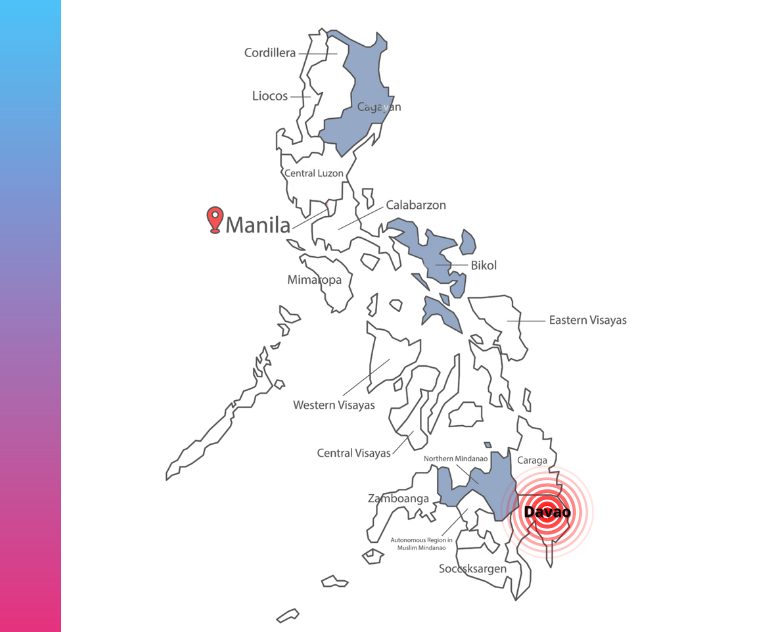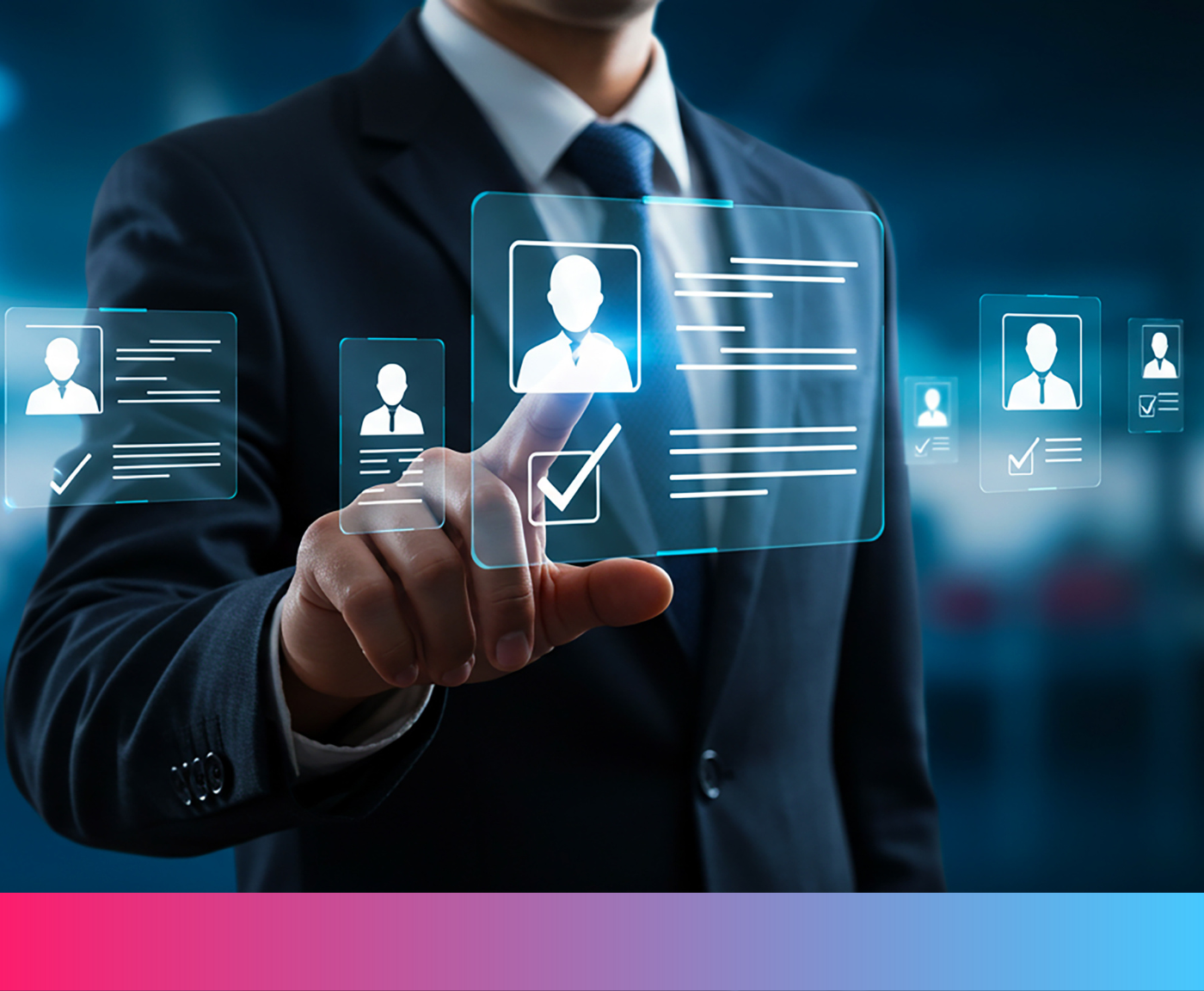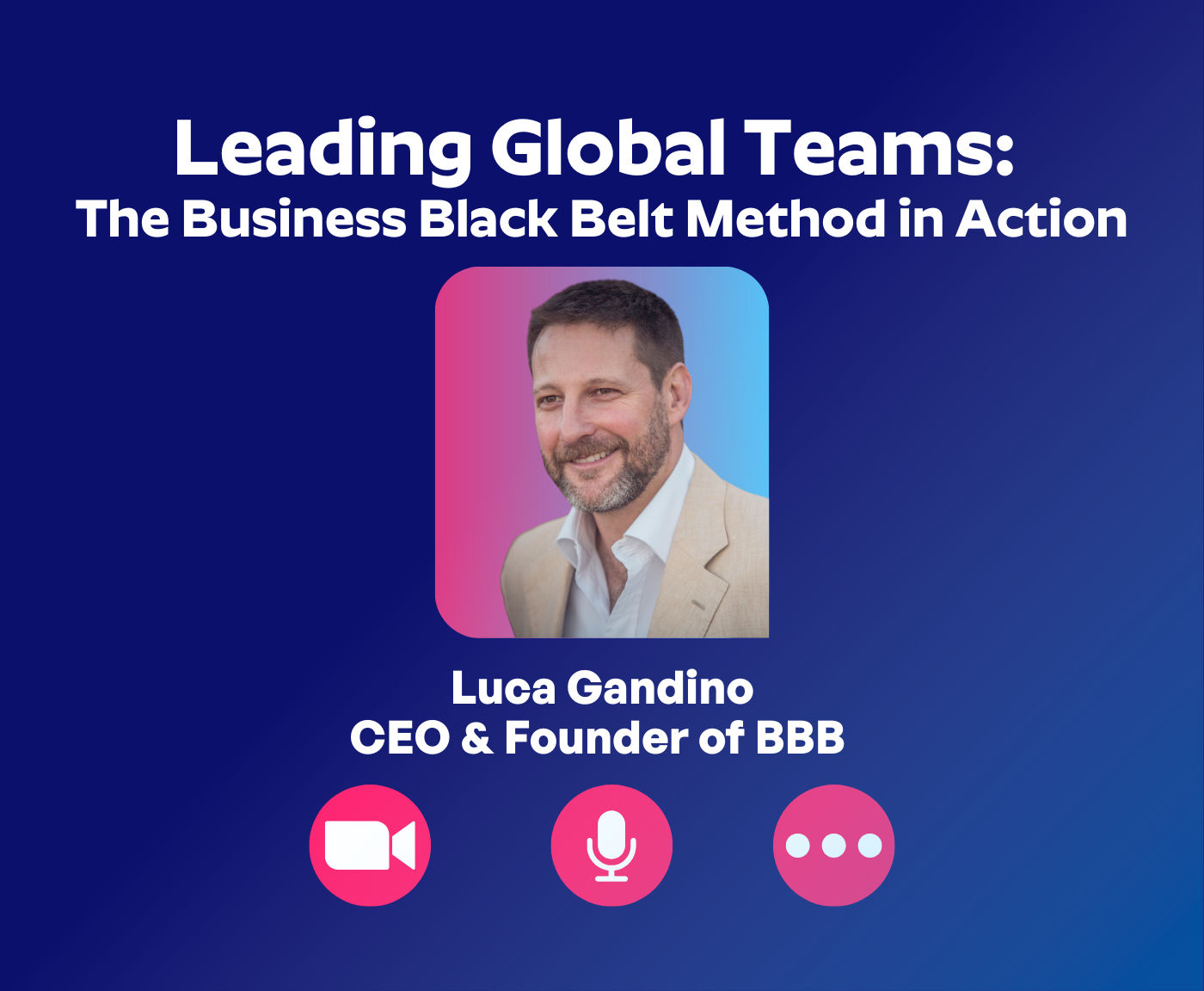Table of Contents
Artificial intelligence (AI) is no longer a futuristic concept reserved for tech companies, it’s now a driving force behind how organizations manage people, optimize operations, and build global teams. Across industries, AI is transforming Human Resources (HR) into a more strategic, data-driven, and globally connected function.
Today’s HR leaders aren’t just managing talent they’re leveraging technology to redefine how businesses attract, engage, and retain top professionals around the world.
From Routine Tasks to Strategic Impact
AI has evolved far beyond chatbots or automation tools. Modern HR teams use AI to streamline workflows, improve accuracy, and unlock deeper insights into workforce behavior.
Repetitive administrative tasks such as resume screening, scheduling interviews, or drafting job descriptions can now be automated, freeing HR professionals to focus on higher-impact responsibilities, shaping company culture, supporting employee growth, and driving innovation.
AI-powered analytics also enable HR departments to make data-informed decisions about talent acquisition, retention, and compensation. Predictive insights help identify turnover risks before they happen and reveal what motivates employees to stay engaged and productive.
This shift from “manual management” to “strategic leadership” means HR is no longer reactive. It’s proactive, scalable, and central to business growth.
Balancing Efficiency and Human Oversight
While AI delivers speed and precision, its implementation requires careful governance.
HR leaders must balance automation with ethical and responsible use, ensuring that AI systems respect privacy, eliminate bias, and maintain transparency.
Building trust in AI starts with human oversight, reviewing data quality, validating outcomes, and ensuring fair decision-making. Organizations that establish clear policies and training programs around AI use are better positioned to avoid compliance risks and protect sensitive employee information.
It’s also essential to communicate openly with employees about how AI is being used in HR processes. Transparency builds confidence and promotes collaboration rather than fear of replacement.
In this new landscape, humans and AI coexist, each amplifying the other’s strengths. Technology handles data-driven tasks, while HR professionals bring empathy, creativity, and strategic vision; the very qualities machines can’t replicate.
The Productivity Revolution in HR
AI’s impact on productivity goes beyond automating tasks, it’s about redefining how HR contributes to business performance.
Recent global trends show that executives are prioritizing AI adoption not only to reduce costs but to maximize efficiency and innovation. Many leaders now see AI as a partner that helps them achieve more with fewer resources, allowing HR to become a profit-driving function rather than a cost center.
AI supports this transformation by:
- Accelerating decision-making: AI tools summarize complex data and highlight key metrics in seconds.
- Enhancing compliance: Automated checks reduce human error and ensure every document aligns with local regulations.
- Improving global coordination: Teams across multiple countries can rely on centralized, AI-driven systems for consistent HR processes.
- Boosting employee satisfaction: Personalized feedback, adaptive learning, and faster support responses foster engagement and loyalty.
As AI continues to evolve, it will empower HR departments to align more closely with business objectives from improving operational performance to shaping the organization’s global talent strategy.


How Digital Platforms Support AI-Driven HR Transformation
Digital transformation is the foundation of every AI-driven HR strategy. Before organizations can fully leverage artificial intelligence, they must first centralize their data, standardize their processes, and ensure full visibility across teams and regions.
Platforms like Serviap Hub play a vital role in this evolution. By consolidating employee information, payroll details, payslips, and request tracking in one secure environment, companies can streamline operations and make better, faster decisions. This digital infrastructure reduces manual errors, enhances traceability, and supports compliance across multiple countries, all essential pillars for global HR efficiency.
Through this type of digital integration, HR teams can manage onboarding, offboarding, payroll requests, and reporting with greater control and transparency. It’s not just about simplifying workflows; it’s about creating a connected ecosystem where data, people, and processes align seamlessly.
As companies continue modernizing their HR operations, tools like Serviap Hub provide the structure and agility needed to integrate future innovations, helping businesses stay prepared for the next wave of intelligent transformation.
The Future HR Leader Is Digital, Strategic, and Global
Tomorrow’s HR leaders will not only understand people but also technology.
They’ll be fluent in data interpretation, comfortable managing global teams, and capable of leveraging AI-driven insights to guide executive decisions.
These leaders will use AI to anticipate workforce trends, forecast skill demands, and design programs that support both employees and company goals. They will shift from “HR management” to “HR innovation.”
In a globalized business environment, where teams operate across countries and time zones, AI gives HR leaders the ability to act faster, smarter, and more strategically ensuring that every hiring decision, policy, or engagement initiative supports long-term growth.
Looking Ahead – AI as a Catalyst for Global HR Transformation
As we move toward an AI-driven era, the question is no longer if organizations should adopt AI in HR, but how responsibly and effectively they can do it.
The future of HR lies in integration, where AI technology complements human intuition.
Organizations that embrace this balance will unlock new levels of efficiency, innovation, and employee satisfaction, building workplaces that are both high-performing and humane.
Partner with Serviap Global to Build a Smarter, People-First HR Strategy
At Serviap Global, we help companies expand and manage teams worldwide through solutions that simplify global employment, ensure compliance, and enhance workforce visibility.
Whether you’re optimizing payroll, managing contractors, or building your next international team, our expertise empowers your HR department to work more efficiently, strategically, and confidently.
Discover how Serviap Global can help your organization embrace innovation, streamline operations, and focus on what matters most, your people. Contact us.
FAQs
1. How is AI transforming Human Resources?
AI is revolutionizing HR by automating time-consuming administrative tasks and empowering professionals to focus on strategy and people development. It helps identify top talent faster, streamline onboarding, monitor employee engagement, and ensure compliance with local labor laws.
2. What are the main benefits of using AI in HR management?
The key benefits include improved productivity, reduced operational costs, and higher employee satisfaction. AI provides insights that help HR teams make informed decisions about hiring, retention, and workforce planning. It also minimizes manual errors and enhances compliance, which is critical for companies with international operations.
3. Are AI assistants in HR replacing human professionals?
No, AI assistants are designed to support, not replace, HR professionals. They handle repetitive and analytical tasks so HR teams can dedicate more time to strategic initiatives such as culture building, leadership development, and employee engagement.
4. How can companies ensure ethical and responsible AI use in HR?
To use AI responsibly, organizations should establish clear governance policies, ensure human oversight, and prioritize data privacy. Regular audits of algorithms and continuous training for HR teams help minimize bias and maintain fairness in decision-making.





























